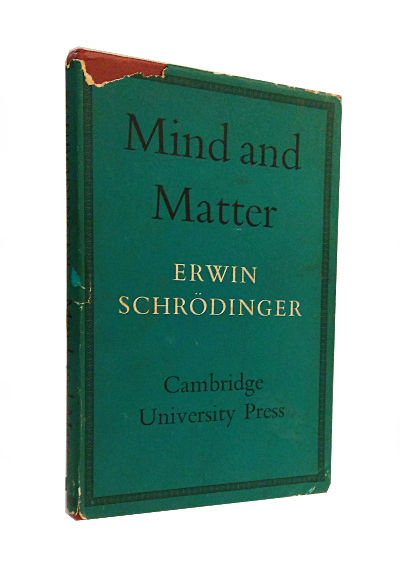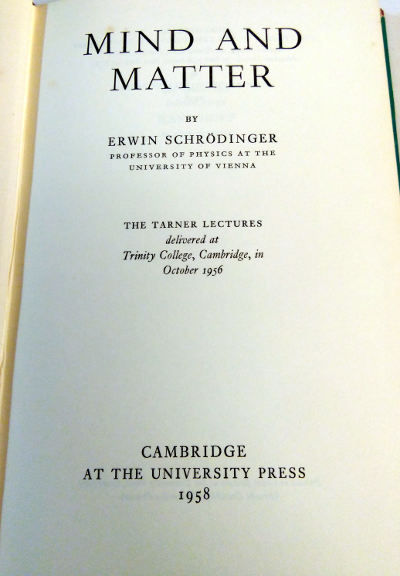About the book (from jacket flap):
The relationship between mind and matter has eluded and puzzled philosophers and scientists since the earliest times. In this book, a distinguished scientist reminds his readers of some of the paradoxes of this relationship, and offers his own suggestions towards a solution of the problem.
He asks what place consciousness occupies in the evolution of life, and what part the state of development of the human mind plays in moral questions. He shows that the biological evidence, while apparently against any systematic increase in man’s intellectual powers from one generation to another, is on closer inspection favourable, provided certain conditions are fulfilled. Another problem, that of the lack of sensible qualities (colour, warmth, sound) in the scientist’s picture of the world is, he suggests, created by the rigid distinctions made in Western though between subject and objects. Is there in fact one real world external to our perceptions? Or is this question itself misleading? Experience after all tells us nothing of the world beyond our senses. Science, similarly, tells us nothing of values; a personal God cannot form part of the space-time picture. But indirectly (for example) Plato, Kant and Einstein, in modifying our conception of time, have helped us with the question of survival
About the author (from Wikipedia):
Erwin Schroedinger, was a Nobel Prize-winning Austrian physicist who developed a number of fundamental results in the field of quantum theory, which formed the basis of wave mechanics: he formulated the wave equation (stationary and time-dependent Schrödinger equation) and revealed the identity of his development of the formalism and matrix mechanics. Schrödinger proposed an original interpretation of the physical meaning of the wave function.
In addition, he was the author of many works in various fields of physics: statistical mechanics and thermodynamics, physics of dielectrics, colour theory, electrodynamics, general relativity, and cosmology, and he made several attempts to construct a unified field theory. In his book What Is Life? Schrödinger addressed the problems of genetics, looking at the phenomenon of life from the point of view of physics. He paid great attention to the philosophical aspects of science, ancient and oriental philosophical concepts, ethics, and religion. He also wrote on philosophy and theoretical biology. He is also known for his “Schrödinger’s cat” thought-experiment.



